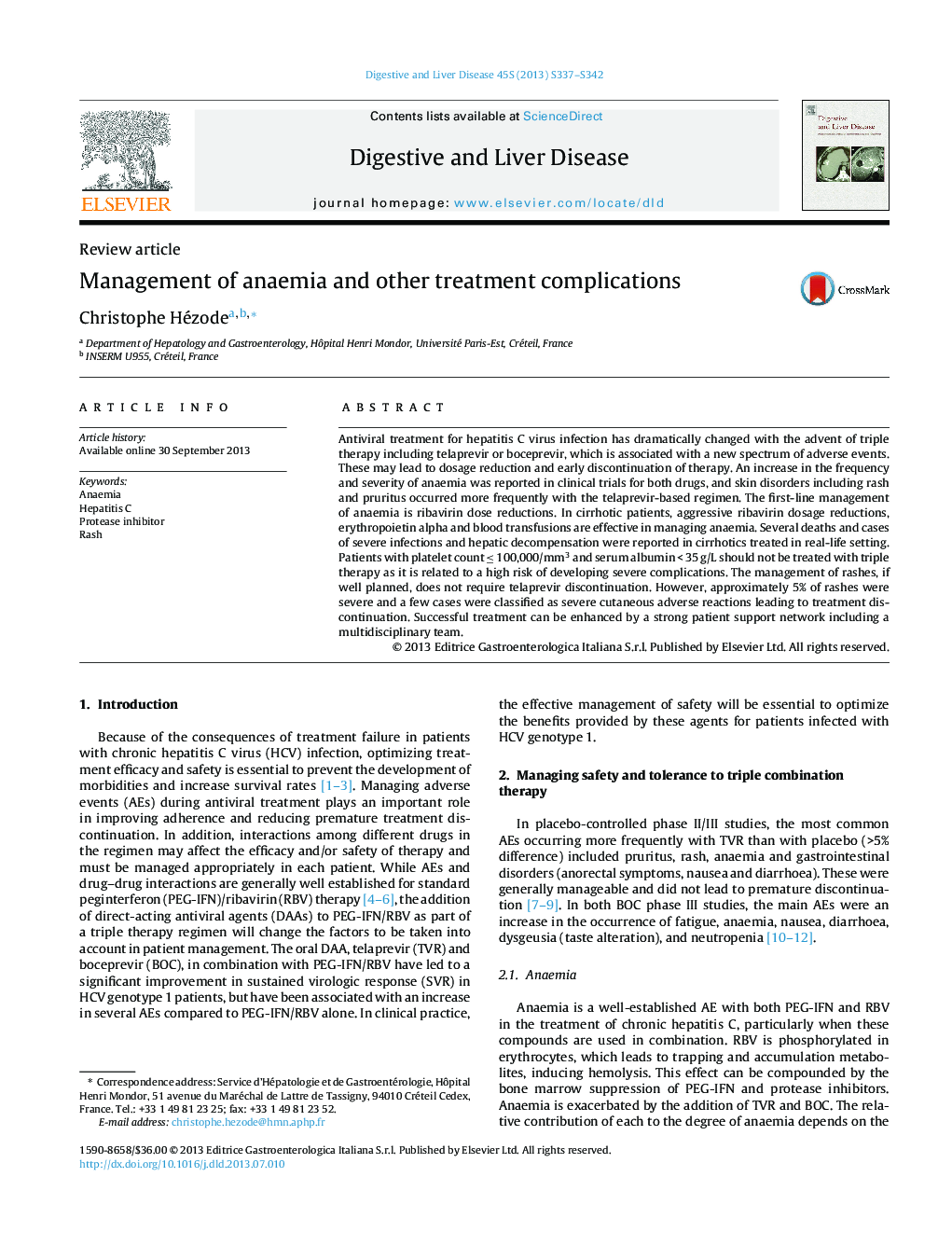| Article ID | Journal | Published Year | Pages | File Type |
|---|---|---|---|---|
| 3262636 | Digestive and Liver Disease | 2013 | 6 Pages |
Antiviral treatment for hepatitis C virus infection has dramatically changed with the advent of triple therapy including telaprevir or boceprevir, which is associated with a new spectrum of adverse events. These may lead to dosage reduction and early discontinuation of therapy. An increase in the frequency and severity of anaemia was reported in clinical trials for both drugs, and skin disorders including rash and pruritus occurred more frequently with the telaprevir-based regimen. The first-line management of anaemia is ribavirin dose reductions. In cirrhotic patients, aggressive ribavirin dosage reductions, erythropoietin alpha and blood transfusions are effective in managing anaemia. Several deaths and cases of severe infections and hepatic decompensation were reported in cirrhotics treated in real-life setting. Patients with platelet count ≤ 100,000/mm3 and serum albumin < 35 g/L should not be treated with triple therapy as it is related to a high risk of developing severe complications. The management of rashes, if well planned, does not require telaprevir discontinuation. However, approximately 5% of rashes were severe and a few cases were classified as severe cutaneous adverse reactions leading to treatment discontinuation. Successful treatment can be enhanced by a strong patient support network including a multidisciplinary team.
